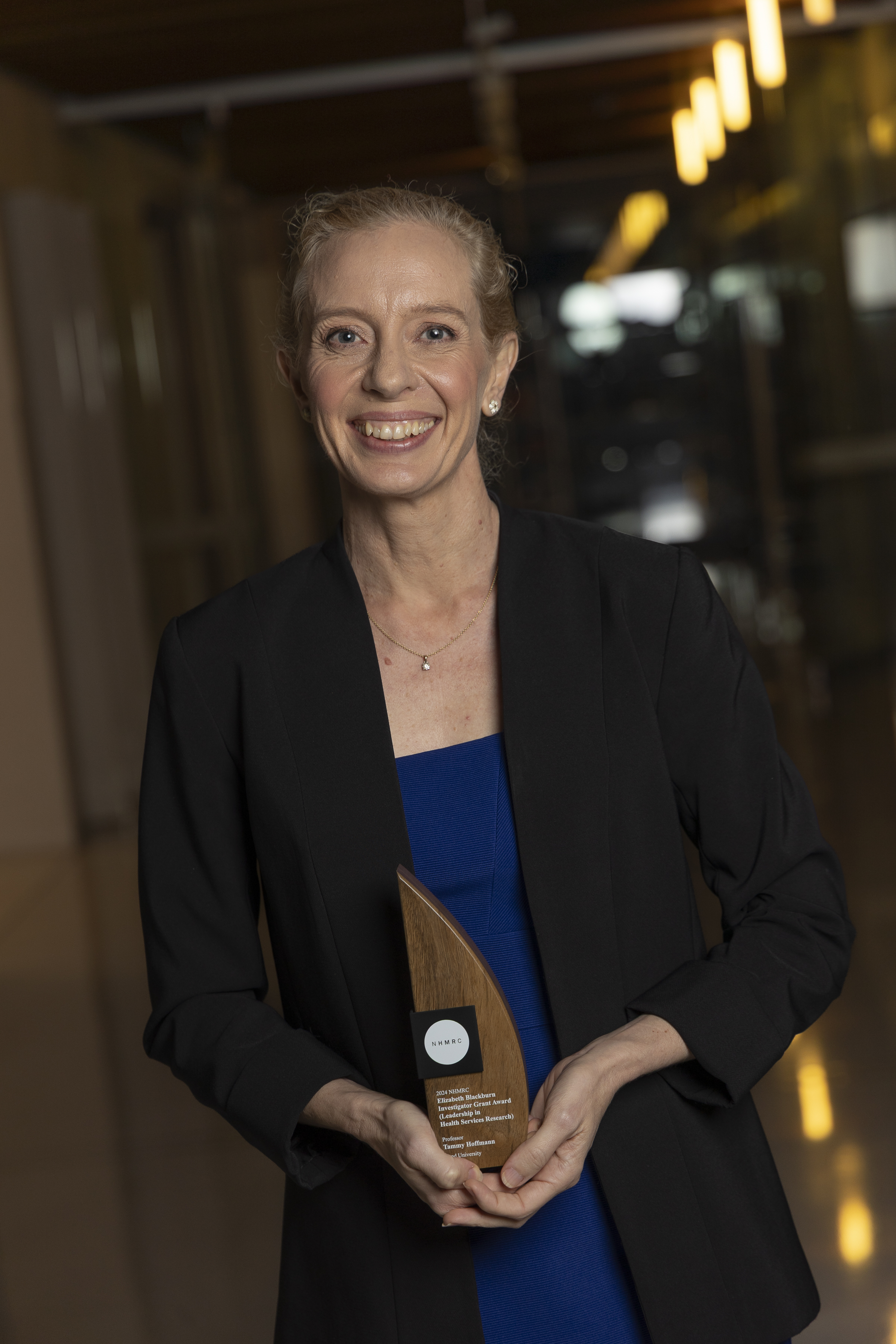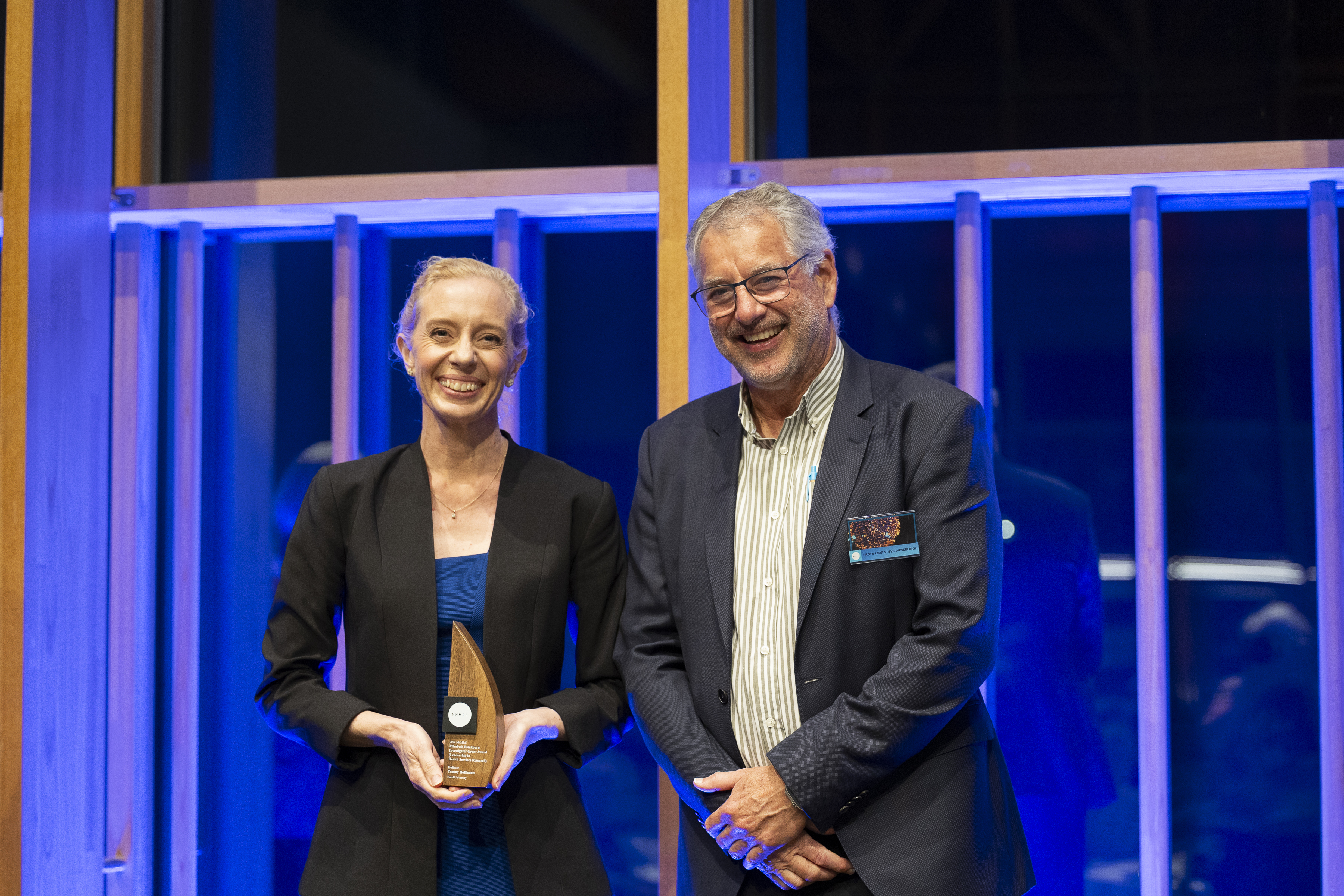Professor Tammy Hoffmann is a Professor of Clinical Epidemiology, specialising in clinical epidemiology and health services research. Her research career has focused on enabling evidence based healthcare so that patients receive effective and patient centred care. This includes enhancing the generation, synthesis, and reporting of rigorous evidence, improving evidence useability and implementation, and promoting shared decision making between clinicals and patients.
Much health and medical research is conducted with the ultimate goal of improving people’s health and wellbeing. Yet it is well known that getting research to routinely inform clinical practice is challenging.
My interest in evidence based healthcare stems from very early in my career when I observed, while working clinically, that some patients received evidence based care, whereas others did not. I found that providing evidence based care consistently was nowhere near as straightforward as I had envisioned, perhaps somewhat naively, when learning about it.
I became intrigued by wanting to better understand the reasons for the gaps between research evidence and its use in clinical practice and this subsequently expanded into developing and evaluating solutions to help mitigate the barriers.

My initial focus was on improving issues involved in the ‘traditional’ evidence based practice process, such as how to help clinicians find and access evidence efficiently, understand how to appraise its quality, and decide whether to use it in decision making.
My research scope grew to encompass shared decision making which involves fostering collaborative decision making between clinicians and patients and supporting patients to make evidence informed decisions that align with their preferences and values.
Shared decision making can be thought of as a mechanism for applying evidence with an individual patient by personalising the clinical decision. It is a way of addressing that elusive step of evidence based practice that was originally described as ‘integrating the evidence with the patient’s values, preferences, and circumstances.’
I have a strong interest in health communication and patient education as that was a large component of my PhD research, and I felt comfortable integrating these 2 research areas.
Articulating the link between evidence based practice and shared decision making and facilitating it became an area of attention in my research. Research into all aspects of shared decision making remains a key focus of my team.

Over the years, my research interests expanded to investigate issues that occur at the point of evidence creation as it became increasingly obvious that much of the research evidence which is generated cannot be used to guide decision making. One aspect of my research now addresses issues around research transparency, reproducibility, reporting, and improving the value and usability of research.
Some of my team’s research tackles specific clinical topics and involves evaluating intervention effectiveness through randomised controlled trials and systematic reviews or conducting implementation studies. Other research that we do is methodological or meta research (research about research) and broadly applicable across many clinical areas. I have also been involved in the development of various research reporting guidelines, PRISMA 2020 (for systematic reviews), and CONSORT 2025 and SPIRIT 2025 (for randomised trials).
My initial research was primarily concerned with increasing the uptake of effective interventions that were underutilised. Our research has since expanded to also address reducing low value care where the benefits do not, or hardly, outweigh the harms, and it is estimated to account for about 25-30% of all healthcare.
Low value healthcare exposes patients to the risk of unnecessary harms and treatment burden, places excessive strain on healthcare systems, and diverts resources and attention from providing beneficial services.
When I commenced research, I couldn’t have envisioned that I would become an evidence specialist, with evidence at the heart of my research.
Because of the relevance of evidence to all disciplines, one of the most enjoyable aspects of my career has been the privilege of working with researchers and clinicians from many fields and disciplines, learning from senior researchers and supporting students, early career researchers, and clinician researchers in different fields.
I am extremely honoured to receive this award and hope that it shines a light on the fundamental importance of generating and implementing high quality, patient centred, and usable research evidence.
With this, the value of research to improve patient outcomes and contribute to a sustainable healthcare system can be maximised.
